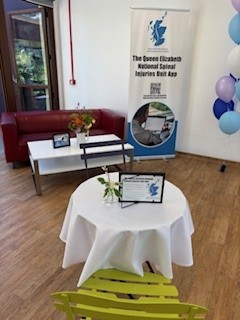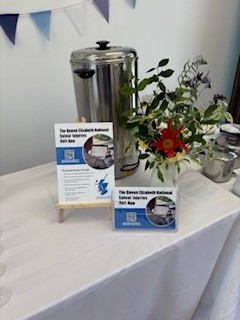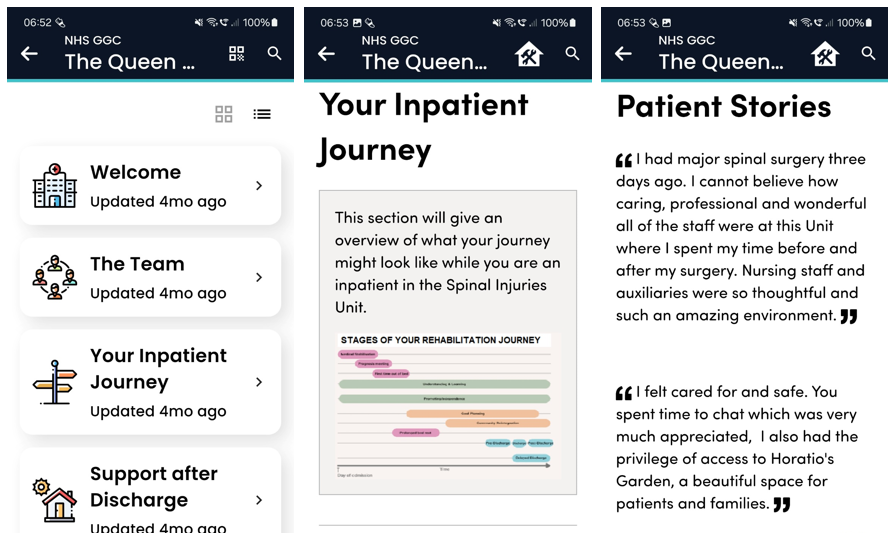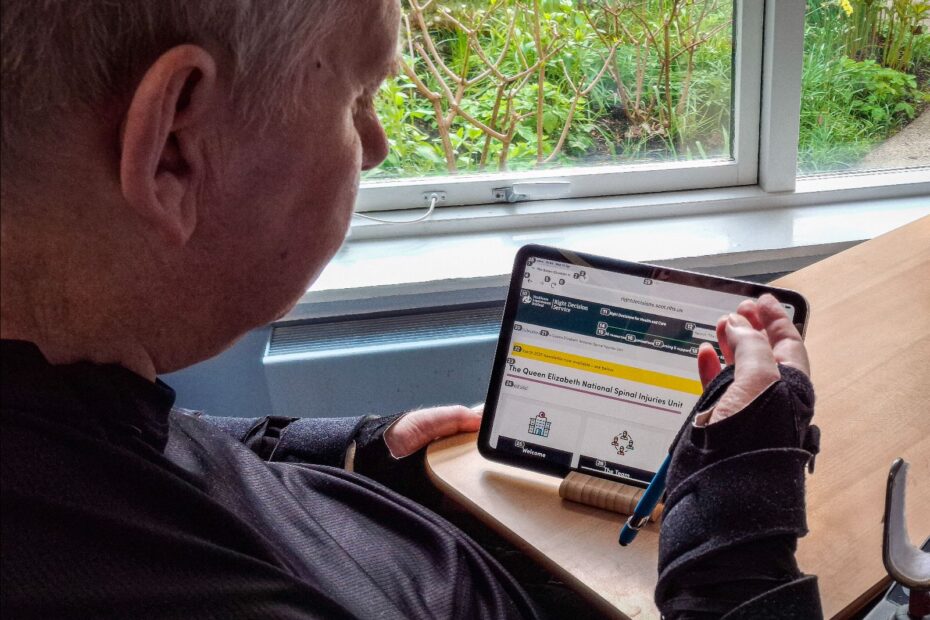
A new digital service to support people living with spinal injury has been launched by NHS Greater Glasgow and Clyde.
The Queen Elizabeth Spinal Injuries Unit App provides patients and their relatives/carers with a comprehensive guide to the unit and the services it provides.
The unit, which is based at the Queen Elizabeth University Hospital, in Glasgow is the national centre for the treatment and rehabilitation of people who have sustained a traumatic injury to the spinal cord. It also sees people with non-progressive spinal cord injuries such as those caused by infection.
The app is designed to give patients and their families a single, user-friendly place to find out about the unit, what to expect during their time there, the services and activities it provides and the people who provide the care.
It also has a space where other patients, past and present, share their stories, and information on a range of partner organisations who provide help and support to those living with spinal injuries.
To launch the event, patients and their relatives/carers, staff and partners gathered at the unit for a special celebration.


During the event, Mary Hannah, Education Nurse Facilitator at the Spinal Injuries Unit, said: “In the vast majority of cases, spinal injury can be a life-changing event.
“Someone might leave home in the morning, with dishes in the sink, and a load of tasks left unfinished for when they get home, but then something catastrophic happens, and from that moment they are looking at a different future, with a long stay in hospital and even a permanent adjustment to a whole family’s life.
“It can be a terrifying and traumatic time, not just for a patient but for those closest to them, and people are often left uncertain where to turn to advice and information.
“And given that the spinal injuries unit is a national service, many families face the added prospect of their loved one staying in a hospital a long distance away, in a city they are unfamiliar with.
“That is why we created the app – to provide the support people need, from the trauma of the initial diagnosis, through every stage of their through treatment, rehabilitation and beyond.
“What will their treatment look like? Who will be caring for them? Where can I arrange support for adjustments to my home?
“Even the most basic questions such as where can I stay when I come to visit my loved one, or where can I get a nice coffee or a sandwich nearby if I fancy one?
“We’ve tried to think of everything a patient, or their loved one, might need, to help them at every stage of their spinal injury journey.”
The app even contains testimonials of current and former patients, to help show that life after a spinal injury will go on and, while it will be different, it can be no less rewarding.

The app was the result of extensive collaboration and engagement with patients, charities and partners, and staff, but Mary is keen to encourage the views of patients and relatives/carers on an ongoing basis.
She said: “We want the app to be an evolving thing, continually adapting to take account of the views of users, and to reflect the experience of our patients and their families/carers.
“So if you have an idea of something that’s missing, or a thought on how we could improve the app, please get in touch with the unit and we will do our best to help.”
- To install the app on your device, go to your Play Store or App Store and search ‘Right Decisions’. Once installed, open the app and search ‘Queen Elizabeth Spinal Injuries Unit’.
- To access through your browser, go to The Queen Elizabeth National Spinal Injuries Unit | Right Decisions

